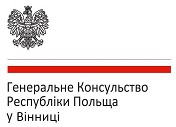Методика вивчення ціннісно-мотиваційних чинників політичної активності
Ключові слова:
motivation of political activity, political values, power motivation, achievement motivation, motivation of affiliation, completeness of motivational structure, internal and external balance of motivational structure, social, processual and subjective levАнотація
The article presents the method of studying of value-motivational factors of political activity. The analysis of terminological and theoretical premises of research of value-motivational factors of political activity is done. Author’s approach to organization of empirical research of psychology of minority political activity is proposed.
Correlation of values and motivation, dynamics of social, activity and personal mechanisms of personality development are considered in the terminological analysis. Using of three factor theory by D. McClelland to empirical research of value-motivational factors of political activity is justified. Based on analysis of research methods of value-motivational factors the content analysis system that allows to measure individual motivational tendencies and qualitative features of human motivation is described.
Based on the analysis of H.Hekhauzen’s research 4 types of situations of the development and implementation of political values and motivation are singled out: 1) the self comparison with own achievements; 2) the self comparison with standart; 3) social comparison with a real opponent; 4) social comparisons with generalized or personalized ideal.
Structure of the research of value-motivational factors of political activity comprises the steps of photobiographical research, expert evaluation and value grates building.
Analysis of the results provides quantitative and qualitative interpretation. Quantitative analysis includes content analysis of the structure of motivation and levels of the value regulation, and the factor modeling. Categories of content analysis can explore the achievement motivation (success motive and the motive of avoiding failure), power motivation and motivation of affiliation (adoption). Each of the categories of content analysis is analyzed for compliance motivational components to one of value levels - social, processual or subjective. The categories for content analysis of achievement motivation is the need to achieve success or to avoid failure, the corresponding instrumental activity, expectations of success or failure, positive or negative reinforcement, emotional state and result. The study of power motive is through singling of categories of prestige, instrumental activity aimed at power, external interference, power anticipation, emotional states, the effect of power action. Content analysis of affiliation motives includes an analysis following categories: positive emotions, dialogue, growth, loyalty, freedom from restrictions, reunification, harmony, conquest to sense, a refuge in a relationship, unity with nature.
As for the level of value, the article noted that on social level individual development is determined by the needs for approval and recognition and reflection is directed to understanding of referential awareness of assessments and forecasting of the basis of their own development. Process level is characterized by awareness of conditions and requirements of activity, reflection focus on skills, actions and operations and the their related results criterion for evaluating of which is effort. On the subjective level processes that occur in the sphere of activity and in social relations are conscious and influence the planning of further self-development.
The indicators of qualitative analysis are: expression of each component in the structure of motivation, completeness of structure of motivation, external and internal balance of motivation structure, the analysis of groups of values that were significant for the results of value assessment.
The proposed research represents the ideographic approach to the study of values and motivation and allows to follow the laws of value-motivational determination of political activity of the political leaders of national minorities.
##submission.downloads##
Опубліковано
Номер
Розділ
Ліцензія
Авторське право (c) 2016 Ольга Савиченко

Ця робота ліцензується відповідно до Creative Commons Attribution-NonCommercial 4.0 International License.
Автор, який подає матеріали до друку, зберігає за собою всі авторські права та надає відповідному виданню право першої публікації, дозволяючи розповсюджувати даний матеріал із зазначенням авторства та джерела первинної публікації, а також погоджується на розміщення її електронної версії на сайті Національної бібліотеки ім. В.І. Вернадського, в міжнародних базах даних CEJSH, Index Copernicus, POL-index, Polska Bibliografia Naukowa.

